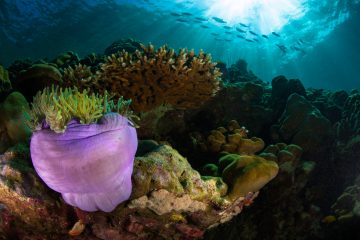
Photo by Milos Prelevic from Unsplash.
Coral reef ecosystems provide tropical nations with nutrition, economic security, coastal protection, and recreation, but warming ocean waters may lead to shifts in fish distributions, which could lead to local extinctions and changes in the species composition of catches.
Led by Ravi Maharaj, researchers from the CORU team have published a new study in Marine Ecology Press Series that explores how thermal exposure and habitat availability shape reef fish assemblages. Data from the Sea Around Us, the Hadley Center, and the UNEP World Conservation Monitoring Center was used to analyze the regional variation in species turnover of exploited reef fish assemblages among nine Caribbean countries from 1971 to 2010.
Sea surface temperature increased at a rate of 0.14°C per decade and the mean temperature of the global catch increased at a rate of 0.19°C per decade. The results indicate that there is a negative interaction between potential reef habitat and sea surface temperature, which points to the sensitivity of fish communities to warming; further, the negative relationship of trophic level and mean catch temperature suggests that fishing increases vulnerability. These results may illuminate the implications of fish sensitivity to warming on the management of marine resources in the Caribbean region.